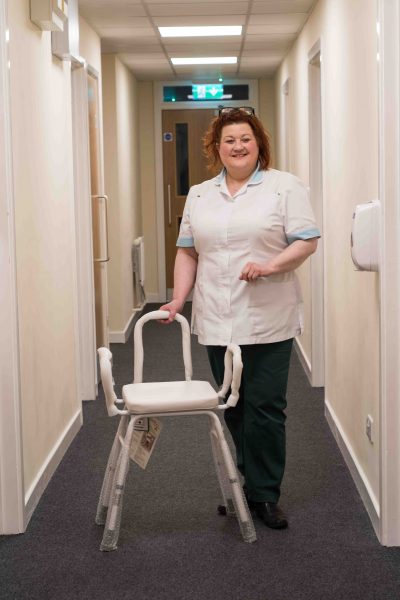Occupational Therapy
Living independently is often very important to people. It may mean different things to different people; however for most, it is about being able to do the things that matter to them.
Occupational therapy aims to help patients live a productive and enjoyable life. This is achieved by maximising their ability to be as independent as possible, for as long as possible, in activities that are meaningful to them. Being active can have a positive effect on mood, well-being and quality of life.
"Mum stayed in the home she loved and never wanted to leave, surrounded by pictures of her grandsons and supported by the love and care of those who were looking after her – it was exactly how she wanted it to be."
When someone has a life-limiting illness, the illness, or sometimes the treatments for it, can affect the way in which they would usually complete activities of daily living. Occupational therapists work with people to identify their priorities. Following assessment, an agreed treatment plan which incorporates achievable goals is designed to promote continued independence in areas of life that are important to them.
As a result of their illness, people may experience symptoms, for example breathlessness or anxiety. Symptoms can also affect their ability to carry out daily tasks. The occupational therapist may teach techniques to enable the person to manage these symptoms more effectively. Learning techniques to manage symptoms can often enable people to be more active.
In some circumstances, equipment may also be useful; if this is the case the occupational therapist can advise and sometimes supply these items free of charge.

REFERRALS CAN BE MADE BY PATIENTS, RELATIVES / CARERS & PROFESSIONALS
CONTACT TELEPHONE NUMBER 01228 608942
Have you received care from our Occupational Therapy Service?
To enable us to evaluate the Occupational Therapy service, we would be grateful if you could complete the questionnaire below.

